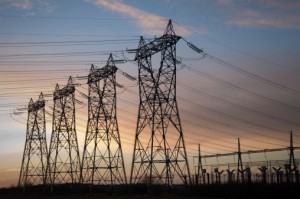Nevada’s casinos and the state’s largest electricity supplier are locked in an escalating conflict, but the Nevada Legislature can turn the impasse into a victory for both parties if it will merely restore economic freedom to electricity markets.
Casino companies are the economic engine of Nevada. However, Nevada’s largest electricity supplier, NV Energy, is threatening the economic viability of the gaming industry with high electricity prices that drive up hotel and casino operating costs. Casino companies could save millions of dollars each year if they could choose their electricity suppliers and were not required to purchase their power from NV Energy. Wynn Resorts reports it can save up to $7 million per year by purchasing its power from other providers. Larger casino companies, such as MGM and Las Vegas Sands, would save even more. Those savings would shore up the casino industry at a time when many casinos are having difficulty meeting their operating expenses and retaining employees.
NV Energy claims the departure of the major casino companies would reduce its sales by 5 percent, forcing it to raise prices on its remaining customers. NV Energy’s claimed need to raise electricity prices appears suspect, given it is undertaking several expensive construction projects of questionable necessity. Small, third-party wholesalers are more than willing to sell NV Energy electricity from existing facilities, yet NV Energy claims it needs to build new facilities of its own and pass along the construction costs to its customers. The casino companies say they should not be held hostage by NV Energy’s construction spending spree and claimed poverty, especially since NV Energy makes more than $350 million in profits each year.
The Nevada Public Utilities Commission says MGM, Sands and Wynn will have to pay NV Energy a combined $121 million in compensatory fees to purchase electricity from other sources. Such exorbitant exit fees effectively bar casino companies from purchasing electricity from more affordable sources.
The Nevada Legislature can solve the impasse by recognizing a solution that would benefit each of the parties, as well as electricity consumers throughout the state.
As much as Nevada’s casino companies are burdened by above-market electricity prices, NV Energy is in turn burdened by a requirement to purchase excess electricity at above-market prices from small solar producers. When businesses and individuals use less power from their solar power equipment than they generate, NV Energy is required by law to purchase much of that excess power. This in itself might not be too troublesome, except that NV Energy is required to purchase the excess solar power at full retail prices, which are much higher than its own generation costs and wholesale electricity prices. NV Energy is forced to purchase and resell the solar power at a loss because the utility must absorb the infrastructure, labor and overhead costs of buying electricity from small solar power producers and selling it at the same price to other consumers. These losses get passed along to electricity customers throughout the state.
The Legislature can assist all parties by passing compromise legislation. An ideal bill would allow casinos to purchase lower-priced electricity from third-party sources, while simultaneously allowing NV Energy to purchase excess solar power at wholesale, rather than retail, prices. Casinos would get relief from high electricity prices, NV Energy would offset its lost customer base by paying more reasonable prices for excess solar power, and electricity consumers would no longer be footing the bill for above-market solar power prices.
The owners of solar power equipment would receive fair market value for their excess power rather than artificially inflated prices. This is hardly a bad deal for solar power equipment owners, especially considering they already benefit from generous taxpayer subsidies, such as a 30 percent subsidy for the cost of solar power equipment.
Difficult problems require well-crafted solutions. The Nevada Legislature can turn several difficult problems into a benefit for nearly all Nevadans by implementing this compromise solution.





